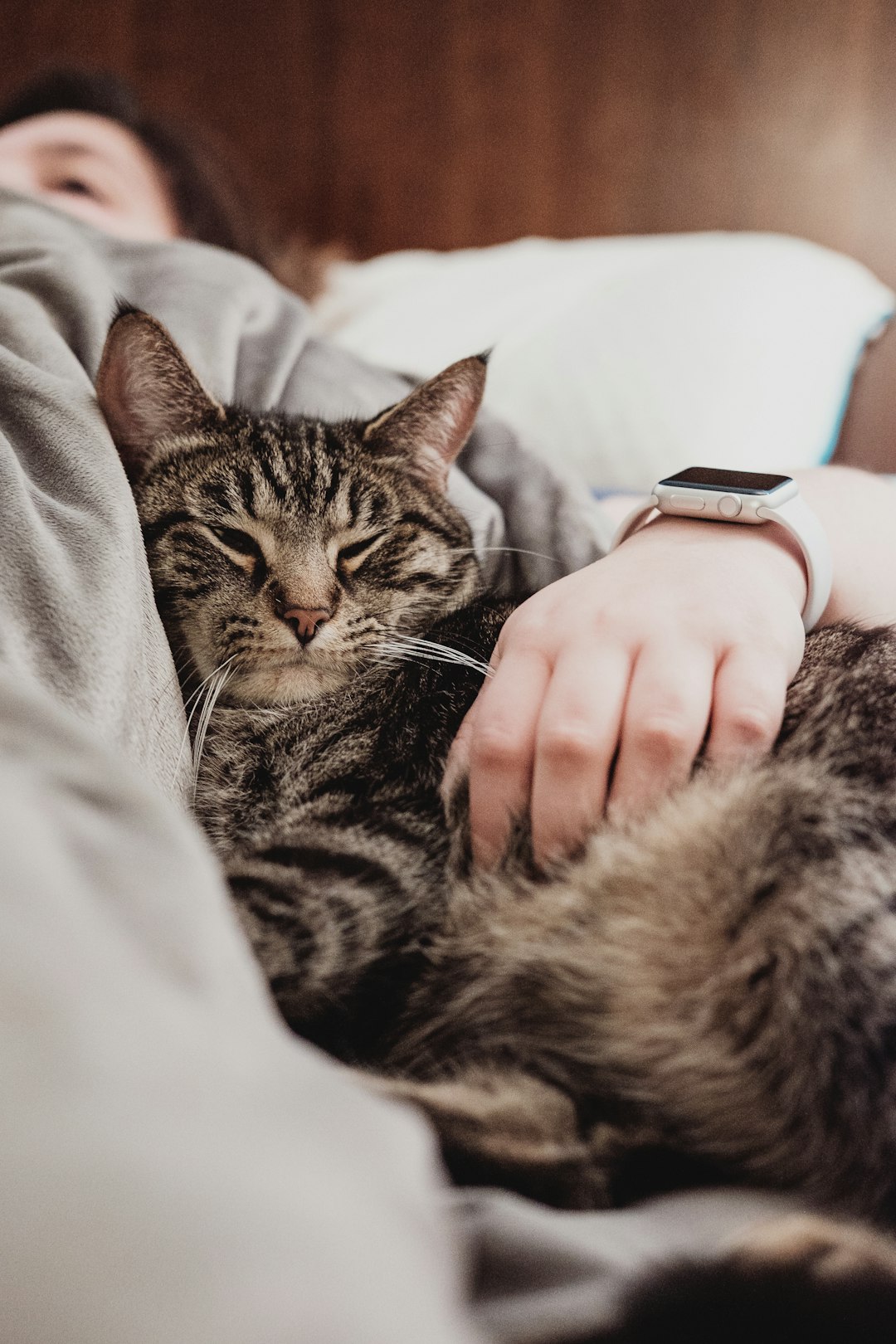Denamarin is a well-regarded supplement specifically formulated for cats, designed to promote liver health and overall wellness. Understanding its benefits and proper usage can significantly impact your pet’s quality of life. This post will explore the key ingredients in Denamarin, how it functions within a cat’s body, and the various health advantages it offers. Additionally, we’ll discuss recommended dosages, potential side effects, and guidance on when to consult your veterinarian about incorporating Denamarin into your cat’s health regimen. With the right information, you can make informed decisions for your furry friend’s well-being.
Overview of Denamarin for Cats
Denamarin is a specialized dietary supplement designed specifically for cats to support liver health. It combines two key ingredients: S-adenosylmethionine (SAMe) and silybin, derived from milk thistle. Together, these components provide powerful antioxidant properties that can help protect and rejuvenate liver cells.
Key Features of Denamarin:
- Liver Support: Denamarin aids in maintaining optimal liver function, crucial for processing toxins and nutrients.
- Antioxidant Protection: The potent antioxidants in Denamarin combat oxidative stress, which can damage liver cells.
- Improved Liver Enzymes: Regular use of Denamarin can help regulate liver enzyme levels, indicating better liver function.
- Palatable Formulation: Denamarin comes in chewable tablets or flavored capsules, making it easier for cats to consume.
Using Denamarin can be particularly beneficial for cats diagnosed with liver disorders, those receiving certain medications, or older cats whose liver function may decline with age. Ensure to consult with your veterinarian before starting Denamarin for the best results for your beloved feline companion.

Key Ingredients in Denamarin
Understanding the key ingredients in denamarin can provide valuable insight into its effectiveness for your feline friend. Denamarin combines two primary components that work synergistically to support liver health:
S-Adenosylmethionine (SAMe):
- A naturally occurring compound that enhances liver function.
- Supports the regeneration of liver cells and protects against toxic damage.
- Promotes the production of important liver enzymes.
Silybin (from Milk Thistle):
- An antioxidant that improves liver cell health.
- Increases bile production, which aids in digestion and waste elimination.
- Protects against free radicals and reduces inflammation in the liver.
Comparison Table of Denamarin Ingredients
| Ingredient | Function | Benefits for Cats |
|---|---|---|
| S-Adenosylmethionine (SAMe) | Boosts liver function and cell regeneration | Helps detoxify, supports liver health |
| Silybin | Provides antioxidant protection | Reduces inflammation, aids digestion |
Incorporating denamarin into your cat’s routine can greatly enhance their liver health, owing to these powerful ingredients. Always consult your veterinarian for tailored advice on using denamarin effectively for your pet.
How Denamarin Works in the Cat’s Body
Denamarin is specifically formulated to support liver health in cats by combining two key ingredients: silybin and S-adenosylmethionine (SAMe). Understanding how these components work together can help cat owners ensure optimal well-being for their furry friends.
Silybin: This natural antioxidant enhances liver function by protecting cells from damage caused by oxidative stress. It aids in stabilizing cell membranes and promoting bile production, which is crucial for digestion and detoxification.
SAMe: SAMe works on a cellular level to support liver function. It encourages the production of glutathione, a potent antioxidant that helps in detoxifying harmful substances in the liver.
Together, these ingredients offer a synergistic effect, helping to regenerate liver cells and improve overall liver metabolism.
Comparison Table of Key Actions:
| Ingredient | Primary Action | Benefit |
|---|---|---|
| Silybin | Antioxidant protection | Reduces liver cell damage |
| SAMe | Detoxification support | Enhances liver function |
In conclusion, Denamarin provides crucial support for your cat’s liver, promoting health and longevity. When considering liver health solutions, denamarin stands out as a powerful option.
Benefits of Using Denamarin for Liver Health
Denamarin offers several significant benefits for your cat’s liver health. This trusted supplement helps support normal liver function, which is crucial for maintaining overall well-being. Here are some key benefits of using Denamarin:
Antioxidant Protection: Denamarin contains S-Adenosylmethionine (SAMe) and silybin, which work together to combat oxidative stress, reducing liver damage.
Enhanced Liver Function: By supporting liver cell regeneration, Denamarin optimizes liver performance, ensuring your cat metabolizes nutrients and medications effectively.
Improved Appetite: Many cat owners report an increase in their pet’s appetite after starting Denamarin, thanks to its positive impact on liver health.
Supports Detoxification: Denamarin aids in the body’s natural detoxification processes, helping to remove harmful substances from your cat’s system.
Promotes Overall Health: Healthy liver function contributes to better energy levels and an improved quality of life for your feline friend.
In conclusion, integrating Denamarin into your cat’s health regimen can lead to a healthier liver and overall improved vitality.

Recommended Dosage and Administration
When it comes to administering denamarin to your cat, following the recommended dosage is crucial for ensuring optimal liver health benefits. The exact dosage may vary based on your cat’s weight and specific health needs. Here’s a simple guideline:
- For cats under 5 lbs: 1/2 tablet daily
- For cats between 5-15 lbs: 1 tablet daily
- For cats over 15 lbs: 2 tablets daily
Administration tips:
- Timing: Administer denamarin on an empty stomach to enhance absorption. Ideally, give it in the morning and wait at least one hour before feeding.
- Delivery: If your cat resists swallowing pills, consider hiding it in a treat or food, or use a pill dispenser for easier administration.
Be consistent with the dosage and consult your veterinarian if you notice any unusual behavior or if your cat’s condition does not improve. Keeping an eye on your furry friend will help in making sure they receive the full benefits of denamarin for their liver health.
Potential Side Effects of Denamarin
While denamarin is generally safe for cats, some potential side effects may occur. Awareness of these can help you monitor your feline friend effectively. Here are some possible side effects to consider:
Gastrointestinal Upset: Cats may experience mild stomach issues, including:
- Diarrhea
- Vomiting
- Loss of appetite
Allergic Reactions: Though rare, some cats might have an allergic reaction. Look for symptoms such as:
- Swelling
- Itching
- Hives
Changes in Behavior: Some cats may become more lethargic or exhibit unusual behavior after starting denamarin.
Comparison of Side Effects
| Symptom | Frequency | Severity |
|---|---|---|
| Gastrointestinal upset | Common | Usually mild |
| Allergic reactions | Rare | Varies |
| Changes in behavior | Moderately common | Mild to moderate |
If you notice any concerning symptoms after administering denamarin, contact your veterinarian immediately. Always remember that early intervention is key to ensuring your cat’s continued well-being.
When to Consider Denamarin for Your Cat
Considering denamarin for your cat can be an important decision, especially when it comes to their liver health. Here are some key factors to help you determine when it might be appropriate:
Liver Disease Diagnosis: If your veterinarian diagnoses your cat with liver disease or dysfunction, denamarin may be recommended as a supportive treatment.
Elevated Liver Enzymes: Blood tests revealing elevated liver enzymes can signal potential liver issues, making denamarin a beneficial option.
Signs of Liver Problems: Look for symptoms such as:
- Loss of appetite
- Lethargy
- Vomiting
- Jaundice (yellowing of the skin or eyes)
Preventive Care: If your cat is at higher risk due to age, breed, or concurrent health issues, you might consider adding denamarin to their regimen as a preventive measure.
Ultimately, consulting with your veterinarian is crucial. They can provide tailored advice based on your cat’s specific health needs and ensure proper usage of denamarin for optimal results.

Consulting Your Veterinarian About Denamarin
Before introducing denamarin into your cat’s routine, it’s crucial to consult with your veterinarian. This step ensures that the supplement is suitable for your cat’s specific health requirements. Here are key reasons to have this conversation:
- Tailored Advice: Every cat has a unique health profile. Your vet will assess factors like age, weight, and underlying medical conditions.
- Proper Diagnosis: If your cat exhibits symptoms of liver issues, your vet can conduct tests to confirm whether denamarin is the right choice.
- Dosage Clarity: Your veterinarian will provide precise dosage recommendations to avoid complications and maximize benefits.
- Monitoring: Regular follow-ups will allow your vet to monitor your cat’s response to denamarin, ensuring it enhances their liver health effectively.
In conclusion, professional guidance is essential when considering denamarin for your cat, as it helps provide optimized care that aligns with your pet’s needs. Always prioritize your cat’s health by consulting with a veterinarian first!
Frequently Asked Questions
What is Denamarin and how does it work for cats?
Denamarin is a supplement specifically formulated for cats that supports liver health. It contains two key ingredients: S-Adenosylmethionine (SAMe) and silybin, a component of milk thistle. SAMe is involved in various biological processes including detoxification and the production of antioxidants, while silybin protects liver cells from damage and enhances liver function. Together, these ingredients promote overall liver health, which is vital for filtering toxins and processing nutrients effectively.
What are the benefits of using Denamarin for my cat?
Denamarin offers several benefits for cats, especially those with liver concerns. It helps enhance liver function by protecting hepatocytes from oxidative stress and promoting their regeneration. Additionally, it aids in detoxification processes, ensuring that the liver can efficiently eliminate waste products. Denamarin may also improve appetite and energy levels in cats suffering from liver issues, ultimately contributing to an improved quality of life and overall well-being.
How should I administer Denamarin to my cat?
Denamarin is typically administered orally, and it is available in tablet or chewable form. It is best given on an empty stomach to maximize absorption, usually at least one hour before feeding. Make sure to follow the dosage instructions provided by your veterinarian, as the required dosage may vary based on your cat’s specific needs and health condition. You may also consider hiding the chewable tablet in a treat to make it easier for your cat to consume.
Are there any side effects associated with Denamarin for cats?
Denamarin is generally considered safe for cats when used according to veterinary guidance. However, some cats may experience mild gastrointestinal upset, such as diarrhea or vomiting, especially when they first start the supplement. If you notice persistent side effects or any unusual behaviors, it is important to consult your veterinarian promptly. Regular monitoring and communication with your vet can help ensure that your cat is responding well to the treatment.



